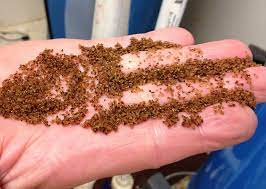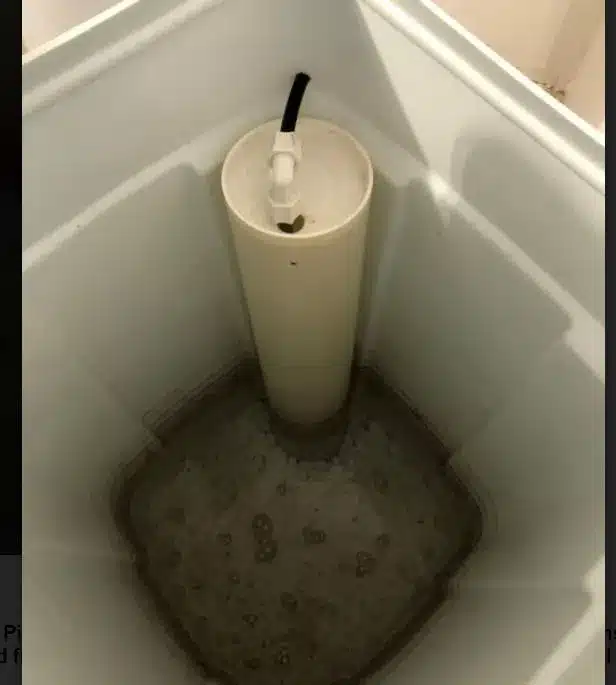H2O to GO boasts a diverse team of marketing experts adeptly dubbed as our “marketing panthers.” As Ralph Waldo Emerson eloquently stated in the late 1800s, “Build a better mousetrap and the world will beat a path to your door.” While innovation serves as a cornerstone, it’s insufficient on its own. Informing the world about the superior mousetrap you’ve built is equally crucial. When H2O to GO engineered their water treatment systems, specifically tailored for the challenging water conditions of Las Vegas, spreading the word was essential. Soft Water Nevada and Soft Water by Melissa are a couple of our trusted partners. We extend our sincere gratitude and acknowledgment.
H2O to Go Las Vegas Voted a Neighborhood Fave in Nextdoor’s 2023 Local Business Awards
H2OTOGO.NET Named Nextdoor’s 2023 “Neighborhood’s Faves” Awardee in Las Vegas, NV
Las Vegas, NV — [August 15, 2023] — H2OTOGO.NET, the leading provider of high-quality water filtration solutions in the Las Vegas community, is thrilled to announce that it has been honored with the prestigious “Neighborhood’s Faves” award by Nextdoor.com. This accolade recognizes H2OTOGO.NET as one of the most beloved and trusted local businesses in Las Vegas, NV.
Nextdoor’s “Neighborhood’s Faves” award is a highly coveted distinction, celebrating the businesses that have made a remarkable impact within their communities. This recognition is a testament to H2OTOGO.NET’s unwavering commitment to providing exceptional water filtration services and products while fostering strong relationships with their valued customers.
Sarah Friar, CEO of Nextdoor, emphasized the significance of this award, stating, “Neighbors know best, and Nextdoor’s Neighborhood Faves are the only annual awards celebrating the businesses that are most loved by locals. This prestigious recognition is only awarded to 1% of the local businesses on Nextdoor and is a testament to the positive impact they have had on their community.”
H2OTOGO.NET has consistently stood out for its dedication to improving the quality of life for Las Vegas residents through clean and safe drinking water. Their commitment to excellence, exceptional customer service, and active participation in community initiatives have endeared them to the hearts of their neighbors.
“Receiving the ‘Neighborhood’s Faves‘ award from Nextdoor is an incredible honor for our entire team at H2OTOGO.NET,” said Bill, at H2OTOGO.NET. “We are deeply grateful to our loyal customers and the Las Vegas community for their trust and support. This award motivates us to continue our mission of delivering the highest quality water filtration solutions while strengthening our bond with our neighbors.”
H2OTOGO.NET remains committed to serving the local Las Vegas community with top-tier water filtration solutions and fostering a sense of belonging. This prestigious award from Nextdoor.com underscores their commitment to excellence and dedication to making a positive impact on the lives of Las Vegas residents.
For more information about H2OTOGO.NET and their award-winning water filtration services, please visit their website at https://h2otogo.net/.
About H2OTOGO.NET:
H2OTOGO.NET is a leading provider of water filtration solutions in Las Vegas, NV. With a strong commitment to quality and customer satisfaction, H2OTOGO.NET has become a trusted name in the local community. They offer a wide range of water filtration products and services designed to provide clean and safe drinking water to households and businesses across Las Vegas.
Flushing Resin Beads from Plumbing in Water Softener: How to Resolve the Issue

Some assembly line built water softeners can spill resin beads. Discovering resin beads from a water softener in your plumbing system can be a frustrating experience. These beads can enter the plumbing if the membrane that holds them in place within the water softener tank breaks, allowing them to travel freely throughout your pipes. Recognizing signs such as low water pressure, grit in shower heads and faucet screens, or even resin beads coming out of your faucet indicates a possible membrane breakage.
To address this problem, follow these steps to flush out the resin beads from your plumbing system:
- Close the water softener valves and open the bypass valve.
- Drain and flush your water heater.
- Remove all screens from your faucets.
- Open all cold water valves in your home.
- Flush and clean the water supply from the washer.
- Run all water-utilizing appliances, including dishwasher, washing machines, bathroom showers, sinks, and kitchen sinks.
- Monitor if resin continues to flow out with the water.
- If appliances become clogged or start to overflow, turn them off, detach their water hoses, and check for clogs. Flush the hoses to clear any beads and remove clogs from the connections.
Once clear water flows from all outlets, you can assume that you have successfully flushed out the resin beads from your pipes. However, it’s essential to address the underlying issue of the malfunctioning water softener. Refrain from turning off the bypass mode, as the broken membrane may still allow resins to enter your plumbing system. To prevent a recurring problem, focus on repairing or fixing your water softener effectively.
How to clean out your salt tank

How to effectively clean dirt and grime from your Salt Tank
Having some dirt and grime in your salt tank is generally acceptable, as water softeners are designed to filter out impurities before they reach your water supply. The majority of the dirt and grime in your salt tank typically comes from the 1% residue found in a bag of 99% pure extra coarse water softening salt. However, if you still wish to clean it for aesthetic reasons, here’s a step-by-step guide:
- Wait until the salt level drops very low in your salt tank.
- Disconnect the brine line from the main control valve. You can do this from either the salt tank side or the main control valve side, whichever is more convenient.
- If possible, move the salt tank to a location where you can empty the remaining water. Create a cleaning solution by mixing dish soap, water, and a small amount of bleach. Use this solution to scrub the inside of the tank thoroughly, and then rinse it out with a garden hose.
Note: Depending on your circumstances, such as location, HOA rules, physical ability, and the type of system you have, it may only be feasible to wipe the tank’s sides with the same soap and water solution as mentioned above.
- Reconnect the brine line to the main control valve. If you emptied the water out during the cleaning process, make sure to refill the tank to its original water level.
- Refill the tank with salt, and you’re good to go.